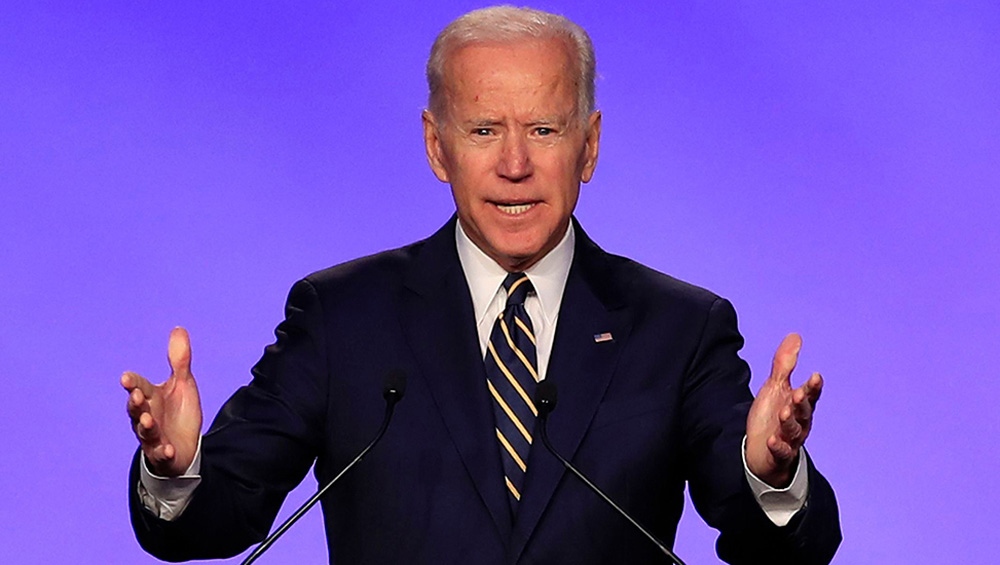
Jessell | Under Biden, No Alarm Bells At FCC For Broadcasters


Harry Jessell
Unless I soon see a video of Hunter Biden pushing a pallet of ballots into the vote-counting warehouse here in Pittsburgh or the 82nd Airborne taking a personal loyalty oath to Donald Trump, I am expecting that Joe Biden will be sworn in as the one and only president of the United States on Jan. 20, 2021.
As always, the installation of a new president will bring massive changes to the seemingly boundless federal bureaucracy. Just about every department, agency, administration and commission will get a new boss.
He or she will build a team of trusted advisers and administrators to turn policy into regulations that have the force of law. In many ways what they do is just as important as what Congress does.
Of course, of all the bureaucratic outposts, the one we at TVNewsCheck care most about is the Federal Communications Commission, with its $400 million budget and 1,500 staffers. Usually, a shift from Republican to Democrat at the FCC is bad news for broadcasting, but I don’t see much to fret about.
The chairman dominates the agency, not only by filling the key jobs, but also by commanding the bureaucracy and completely controlling the agenda. Nothing moves forward and nothing happens without the chairman’s say-so. The other commissioners are there mostly to give the semblance of democracy and split up the public speaking chores.
As is the custom, Chairman Ajit Pai will likely leave right around inauguration day.
He’s been good to broadcasters. He relaxed the broadcasting ownership rules in 2017 and it looks like the Supreme Court will affirm that action next summer. He restored the UHF discount that allows TV groups to expand their reach up to 78% of the country.
And he has done all that could be expected of him in repacking the broadcast band after the broadcast spectrum action and in shepherding the ATSC 3.0 rollout.
My only gripe is that he got too friendly with Trump. This fall, he betrayed the independence of the agency by announcing he would move forward with Trump’s so-called Section 230 proposal to strip the owners of social media of their First Amendment right to tag, edit and delete user posts. It seems that anybody who gets too near Trump falls into his thrall.
Biden will appoint one of the two other sitting Democrats, Jessica Rosenworcel or Geoffrey Starks, as the interim chair when Pai leaves. Based on seniority, it will probably by Rosenworcel.
Rosenworcel is also in line to become the new permanent chair and, if she makes it, she will be the first woman to in that post. Democrat Mignon Clyburn was interim chair for a short time in 2013 during the transition from Julius Genachowski to Tom Wheeler during the Obama administration.
But you never know. The FCC is a plumb patronage job and Biden has a lot of people to take care of.
In fact, there has been talk that Clyburn may make a comeback. Appointed by President Obama in 2009, she served nine years as a commissioner and was a loyal second vote for Genachowski and Wheeler.
The job is hers for the taking. Her father is Jim Clyburn of South Carolina, the House Majority Whip and, more important in this context, the man who rallied African-American support for Biden in South Carolina’s Democratic primary and put him on a course to the win the nomination. Of course, Mignon may be seeking an even better government job.
More names for the FCC chair will likely emerge in the coming months.
With Pai going and with the party controlling the White House entitled to three of the FCC’s seats, Biden will have a third Democratic seat to fill. Again, it’s a nice patronage post, but he could defer to the Dem powers on the Hill to make the pick. That’s been the custom lately on commissioners other than the chairman.
Biden will be stuck with Republican Brendan Carr, who not only embraced the noxious Section 230 proposal, but revealed himself to be an unabashed Trump partisan is gushing about the proposal in front of TV cameras.
Had Trump won, we would be talking about him as the next chairman. That would not have been good for broadcasters. Given Trump’s well-documented antipathy toward the media that the FCC regulates and his vindictiveness, you would not have wanted a Trump lackey in the post.
The other Republican seat belongs to Michael O’Rielly, but not for long. His term in up at the end of the year. Trump nominated him for another five-year term but withdrew the nomination — fired him — after O’Rielly questioned the FCC’s authority to regulate social media.
In place of O’Rielly, Trump tapped Nathan Simington, a staffer at the Commerce Department’s National Telecommunications and Information Administration, who worked on the petition triggering the Section 230 proceeding.
I’m betting that Simington’s nomination withers away, giving Biden or Democratic lawmakers a Republican seat to fill. Maybe Biden will let him keep his job at the NTIA, a harmless agency where he can’t do any damage.
(Yesterday, Trump tweeted support for Simington’s quick Senate confirmation, but Sen. Richard Blumenthal [D-Conn.], threatened to block the confirmation unless Simington promises to recuse himself from any Section 230 proceeding. The proceeding, by the way, will die in the Democratic FCC.)
I’d like to see O’Rielly brought back. Unlike Stark and Pai, he had the guts to ignore Trump on social media and he has been a strong advocate of broadcast deregulation. Among others things, he led the charge on relaxing the children’s programming requirements.
Biden certainly doesn’t owe O’Rielly anything, but it’s possible that one of O’Rielly patrons on the Hill will try to revive his FCC prospects.
Regardless of which Democrat takes the helm, he or she is unlikely to provide broadcasters with any more significant regulatory relief. As a rule, it’s not what Democrats do.
At the top of the broadcast groups’ wish list is further relaxation of the ownership rules so they can own two network affiliates in a market. Affiliate combos would allow the groups to operate more efficiently while lessening competition in the sale of advertising.
Broadcasters have become adept at circumventing the ownership rules in mergers and acquisitions with various third-party ownership schemes. Such work-arounds may face more scrutiny from the Democrats. Scripps should take note. It has a big deal pending (the acquisition of Ion Media) that stretches the limits of the rules.
And I suspect that the Democratic FCC will get rid of the UHF discount in calculating the permissible size of station groups, which would block any more mega-groups like Nexstar from forming. Other groups will be capped at 39% of TV homes.
On the other hand, the Dems may be more receptive to the affiliates’ call for extending their retransmission consent rights to virtual MVPDs. The way things are now, without those rights, the broadcast networks are cutting the distribution deals with the vMVPDs and the affiliates are coming up on the short end of the fees the networks collect. This is high on the affiliates’ priorities lists.
Democratic Chairman Wheeler launched a proceeding to look at the issue in 2014, but, for whatever reason, lost interest in it and never brought it to fruition.
All in all, I don’t see much reason for broadcasters to be alarmed by a Democratic FCC. In calling around, one longtime comm lawyer said that the Dems might want TV stations to do more reporting on the political advertising they receive — a minor additional administrative burden.
But I would be shocked if a Biden FCC started talking again about the need for concrete public service obligations or free airtime for candidates. Those days are long gone.
This is not because the Dems’ propensity to regulate things has diminished as much as it is because their focus in electronic communications has turned elsewhere.
The Dems are now obsessed with net neutrality, rules that would bar the cable operators and other broadband distributors from discriminating against content providers. Wheeler adopted a net neutrality regime. The Pai FCC got rid of it. Look for the new Biden FCC to bring it back in some form.
Broadcasters need not fret over much from a regime change at the FCC under President-Elect Biden. While further regulatory relief is unlikely and the UHF discount may disappear again, there may be a higher receptivity to affiliates’… Click To TweetThe Dems want to bridge the so-called digital divide by making sure that broadband access is available to those now deprived due to rural remoteness or poverty. In this effort, the Dems would be building on several initiatives of the Pai FCC.
I would like to see the Dems do more to increase minority ownership in radio and TV broadcasting. And I think they will, especially if Clyburn returns.
So, relax, broadcasters. The divisiveness and bitterness of the presidential campaigns is not going to slop over into the FCC. And while the Democratic FCC might not help much, it shouldn’t hurt much either.
Harry A. Jessell is editor at large of TVNewsCheck. He can be contacted here. You can read earlier columns here.
































Comments (2)
RustbeltAlumnus2 says:
November 12, 2020 at 8:57 am
Same swamp, different day.
tvn-member-3011604 says:
November 12, 2020 at 1:44 pm
“Regardless of which Democrat takes the helm, he or she is unlikely to provide broadcasters with any more significant regulatory relief. As a rule, it’s not what Democrats do.” One of the few true statements in this editorial. There’s nothing Dems like more besides taxing people into oblivion than regulating them. Jessica, who is no friend of the broadcast industry–especially the LPTV community, and her minions will be sure to reinstate most of the regulations Pai got rid of and then dream up a few more…all in the name of diversity or climate change or consumer protection or something. “…Trump’s well-documented antipathy toward the media that the FCC regulates and his vindictiveness…” Given the extreme invectives and 24/7 spume of hate for Trump coming from the media can anyone blame him? Actually, Trump has been far more hands-off with the media than Obama was. To my knowledge Trump hasn’t spied on any reporters the way Obama did. “My only gripe is that he (Pai) got too friendly with Trump.” Tom Wheeler was a frequent visitor to the WH and it was Obama who pressured Wheeler into instituting Net Neutrality regs through the FCC. Taking Section 230 protections away from the far too powerful tech giants is a hand slap. If you think that move is too harsh, you should see the three lawsuits the EU has filed against Google. They will significantly reduce Google’s presence in Europe if not end it. I don’t expect an editorial that swoons over everything Trump and Pai did for broadcasters but it would be nice to have an even handed one that gives due credit where it belongs.